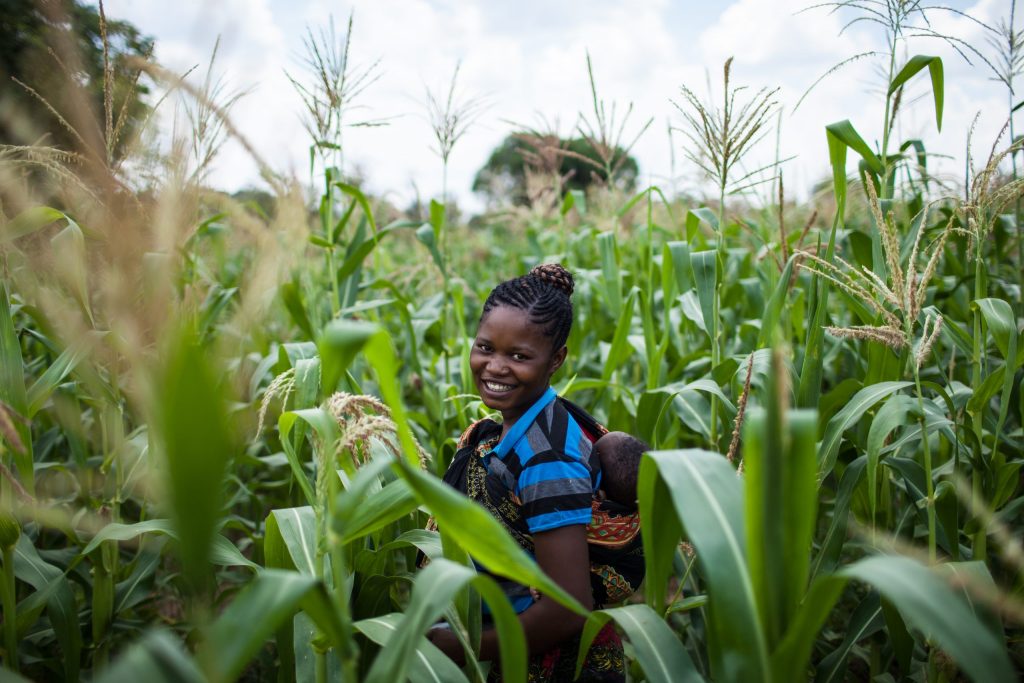By John Robert Okware
I grew up near the slopes of Mount Elgon in Eastern Uganda. The fertile soils there are favorable for agriculture and our family earned a precarious living from farming. Right from the age of five, I was oriented into agriculture as a source of not only food but also school fees for my education. Every season presented challenges.
I remember vividly one season when we had a bad harvest because of drought, we got only four bags of cotton out of the projected 20 bags. Worse still, the school term was due to begin, so we needed to sell off the cotton to raise fees. When I delivered the cotton to our cooperative society store, the price had dropped to less than $10 per bag and the money was to be paid to us after two weeks – most likely because the cooperative had liquidity challenges. With this being the only income source at that time, and there being no one to borrow from, we had to wait. So I reported to school two weeks late. This might sound familiar to some of you reading this.
Later, while at high school and even when I went to university, I grew maize to pay for my tuition. The experience was no different; each year was a struggle with lots of uncertainty depending on the weather and the prices. These experiences inspired me to pursue studies in economics where I could contribute towards making the agricultural sector more efficient and rewarding, especially to smallholder farmers and small and medium enterprises (SMEs).
I began my career as a loan officer with Centenary Bank in the Luwero Triangle where agriculture was the core economic activity. I used to ride a motorcycle 50-100km several times a week to appraise livestock, coffee, and pineapple farmers for financing. I developed a close connection with the farmers and the economics of their farms, and this enabled me to assess the risks and grow a quality loan portfolio. As I progressed in different roles, I started to see how building the capacity of the foot soldiers, providing the right incentives, and putting the right support structures in place was critical for growing a quality agriculture portfolio.
When I later joined Opportunity Bank and moved into more senior management roles, I realized that the bank could not build a healthy portfolio in agri-SME lending alone. The agriculture loan portfolio was significantly loss-making, largely because the bank had a high ratio of non-performing agri loans and the cost of originating these loans was high since most of the SMEs were involved in the production node of the value chains and were located in far and hard-to-reach areas. There was also a high turnover of loan officers going to other banks that paid a bit more, which affected the loan portfolio management and required continuous capacity building. The bank needed partners to give a hand to change the situation and make the portfolio profitable through capacity building at different levels, risk-sharing instruments, digitization of operations, and especially in providing grants for expanding the footprint to the rural and hard-to-reach areas.
I know that the private sector does not always speak the same language as governments, donors, or NGOs, but I have also seen what is possible when these actors work together. At Opportunity Bank, partnerships with the likes of USAID Development Credit Authority (DCA), the Agricultural Credit Facility (ACF) of the Ugandan government, and other risk-sharing guarantees enabled us to grow a quality agriculture loan book from 15% to 28% of the total loan portfolio.
When this position with Aceli opened up a few years ago, I saw an opportunity to apply all of my experience and learning – as a farmer, loan officer, branch manager, and in senior management at a commercial bank – to the entire market system. In Aceli’s partnership with the Uganda Bankers Association and dialogue with the Bank of Uganda, I see an opportunity to strengthen the regulatory environment for lenders across the country. When I go to meet with banks, I see how they are using Aceli’s incentives to enter new regions and value chains. When I visit branches in Mbale and Lira and accompany loan officers visiting their SME clients who are getting a first-time loan, and their farmer suppliers who are now getting paid on time, I see real change in action. And when I visit SMEs that have graduated from our technical assistance program, I see them better understanding their businesses and being able to attract more capital. Looking at all of these changes across the sector, I see a brighter future for SMEs in agriculture.
I am energized to see Aceli’s partners working together to build a stronger and more inclusive agriculture sector that creates opportunities for families like my own. My heart is full.

